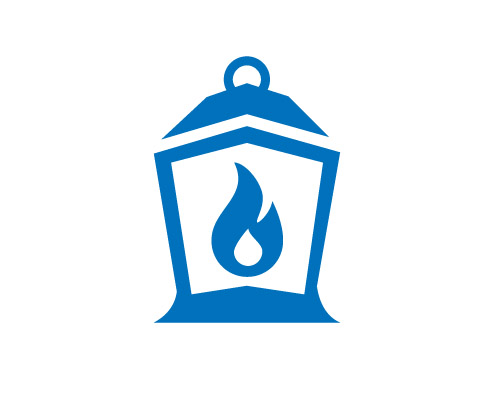The start-up accelerator Dreamit Ventures held a demo day for its third New York class of entrepreneurs yesterday in midtown Manhattan. The fifteen companies presenting included a fashion trend forecaster, a home service management platform, and a souped-up LinkedIn for lawyers, among many others. Three of the teams are also participants in Dreamit Israel, a special program that gives Israeli entrepreneurs accelerator time in Israel and New York in order to give them broader market exposure.
It wasn’t the most groundbreaking of demo days, but there were some solid ideas out there. Here are our picks from the lineup.
 TouchBase: Founded by a team from MIT, TouchBase is a technology that uses a smartphone app to read physical objects printed with invisible conductive ink tags. A business card, for instance, can then be embedded with digital content so that when you swipe the card across the app on your phone’s screen, it reads the pattern like a QR code and the content opens on the screen. (The team had business cards on hand today that linked to the trailers of upcoming movies.) Co-founder and CEO Sai To Yeung told me that the product will still be in development for another few months, and that they are planning to reach out to clients at the end of 2013.
TouchBase: Founded by a team from MIT, TouchBase is a technology that uses a smartphone app to read physical objects printed with invisible conductive ink tags. A business card, for instance, can then be embedded with digital content so that when you swipe the card across the app on your phone’s screen, it reads the pattern like a QR code and the content opens on the screen. (The team had business cards on hand today that linked to the trailers of upcoming movies.) Co-founder and CEO Sai To Yeung told me that the product will still be in development for another few months, and that they are planning to reach out to clients at the end of 2013.
Yeung said that the commercial applications of this could range from putting tags on Magic the Gathering cards to animate a battle to authentication and ticketing. In everyday life, tagged metro cards could show a traveler’s balance. And it has distinct advantages over NFC and QR codes, Yeung said: while NFC is expensive and only available for a fraction of smart phones, visible QR codes make for easy counterfeiting. The one downside is that you have to have the app already in order to scan the conductive ink code.
TouchBase announced today that they are raising $500,000 for patent application, further research, beta testing, and staff growth.
 Callida Energy: Callida Energy is out to reduce commercial buildings’ energy waste and the billions of dollars in associated costs by taking a predictive approach to regulating electrical and fuel usage. While most buildings currently operate in a reactive way, which tends to be inefficient, Callida uses measurements like occupancy and weather forecasts for the upcoming day to suggest heating and cooling schedules that regulate the building’s temperature more efficiently throughout the day. It makes use pre-cooling strategies, for instance, turning on the air for a period in the morning when electricity is cheaper so it doesn’t have to spike in the afternoon.
Callida Energy: Callida Energy is out to reduce commercial buildings’ energy waste and the billions of dollars in associated costs by taking a predictive approach to regulating electrical and fuel usage. While most buildings currently operate in a reactive way, which tends to be inefficient, Callida uses measurements like occupancy and weather forecasts for the upcoming day to suggest heating and cooling schedules that regulate the building’s temperature more efficiently throughout the day. It makes use pre-cooling strategies, for instance, turning on the air for a period in the morning when electricity is cheaper so it doesn’t have to spike in the afternoon.
The software works on top of building managers’ existing energy systems, like Siemens and Honeywell. On Callida, the manager can also the building’s priorities, including occupants’ comfort, cost reduction, and energy reduction, which then factor into the recommended energy use schedule.
The company is already piloting with buildings at Harvard Business School, Cooper Square Realty, and Transwestern Investment Company. The team is raising $500,000 with a goal of piloting six buildings by year’s end before a commercial release.

Miner: Miner is a location-based commerce app that uses geofencing technology to show virtual storefronts based on where you are. If you’re at a Yankees game, you’ll see offerings for bobblehead dolls, beer, and posters. On the B2B side of things, businesses can create location specific content to promote discounts and do giveaways. Miner then takes a cut of any sale made through the app. Miner is also selling itself on its TreasureMiner giveaways. Users are given a map and a digital voucher for a real world prize, but they don’t know what it is until they arrive.
The company is opening a seed round of $1M today, and they’re also launching their beta app on iOS and Android.
 WeDidIt: It’s hard to believe that some nonprofits are still using mailings to fundraise — and haven’t realized that we don’t like filling out donation sheets on clipboards on the street — but it’s often still the case. Enter WeDidIt, a start-up that’s trying to help nonprofits go digital in order to make their fundraising efforts more effective and cost efficient. WeDidIt creates crowdfunding campaigns, and, yes, puts mobile apps in street solicitors hands to make it easier to both get and input donations. It also creates an analytics dashboard on which nonprofits can see, for instance, how many donations a particular Facebook post led to and how much was raised because of it.
WeDidIt: It’s hard to believe that some nonprofits are still using mailings to fundraise — and haven’t realized that we don’t like filling out donation sheets on clipboards on the street — but it’s often still the case. Enter WeDidIt, a start-up that’s trying to help nonprofits go digital in order to make their fundraising efforts more effective and cost efficient. WeDidIt creates crowdfunding campaigns, and, yes, puts mobile apps in street solicitors hands to make it easier to both get and input donations. It also creates an analytics dashboard on which nonprofits can see, for instance, how many donations a particular Facebook post led to and how much was raised because of it.
WeDidIt announced today that they will be looking to raise a $750k round to expand their tech and sales teams, grow the platform, and onboard 500 clients in the next 15 months. In addition to those nonprofits they already work with, co-founder Ben Lamson announced onstage that Amnesty Interational will now be using the WeDitIt platform and mobile app, having realized that their street solicitations were approaching fundraising all wrong.
